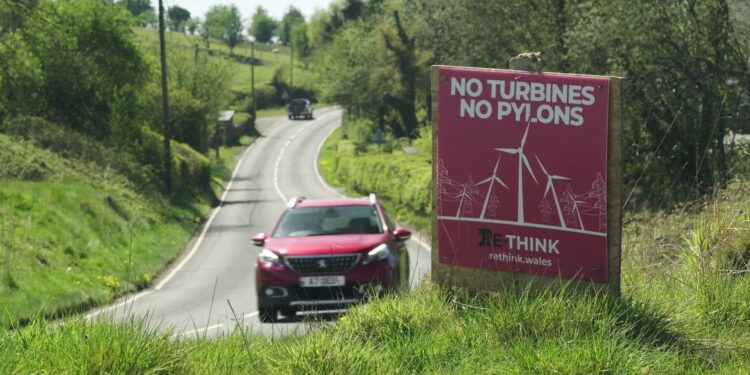In Devon and Wales, communities are fighting against the construction of green energy infrastructure, such as wind turbines and pylons. These projects have sparked controversy and opposition from local residents who are concerned about the impact on the environment and their quality of life.
In Devon, plans to build a wind farm near the village of Ashwater have been met with resistance from residents who fear the turbines will spoil the picturesque landscape and disrupt wildlife habitats. The proposed site is located in an area of outstanding natural beauty, and many locals feel that the benefits of renewable energy do not outweigh the potential negative consequences.
Similarly, in Wales, plans to erect a line of pylons to connect wind farms in Mid Wales to the National Grid have faced backlash from residents and environmental groups. The pylons would traverse through scenic countryside, including areas designated as Sites of Special Scientific Interest, raising concerns about the impact on biodiversity and tourism.
Opponents of these projects argue that there are alternative ways to generate green energy that do not involve disrupting natural landscapes and communities. They are calling for greater consideration of the environmental and social impacts of such developments, as well as more meaningful consultation with local residents.
Despite the opposition, proponents of green energy infrastructure argue that these projects are essential for reducing carbon emissions and transitioning to a more sustainable energy system. They point to the urgent need to address climate change and meet renewable energy targets set by the government.
The conflict between the communities and developers highlights the challenges of balancing the need for clean energy with the protection of natural landscapes and local interests. It also underscores the importance of engaging with communities early in the planning process and considering their concerns and perspectives.
As the debate continues in Devon and Wales, it remains to be seen how these conflicts will be resolved and whether compromises can be reached to accommodate both the need for green energy and the concerns of local communities. The outcome of these battles will have implications for future renewable energy projects and the broader transition to a more sustainable energy system.





























































